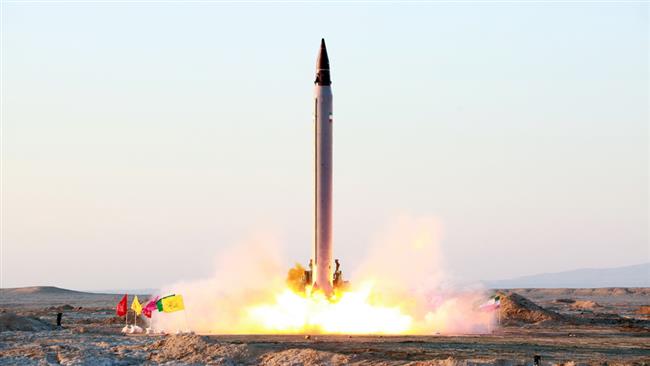Alwaght- A high ranking military commander in Iran says the Islamic Republic vehemently rejects any request for negotiations about its missile capability.
"Our country's defense prowess, as the main deterrent against the enemies of the Islamic Revolution, will always be on the path to progress,” Deputy Chief of Staff of Iran's Armed Forces Brigadier General Massoud Jazayeri said on Saturday.
"Any demand for negotiations on the Islamic Republic of Iran's missile power is basically rejected," General Jazzayeri said.
He added that in addition to clear guidelines issued by Leader of the Islamic Revolution Ayatollah Seyyed Ali Khamenei on boosting the country's defense power, the Iranian nation and officials are also in agreement in this regard.
The senior commander advised all those who pass opinions about the Islamic Republic not to meddle in the country's defense and missile program.
In similar remarks in October, General Jazzayeri warned European states to avoid meddling with his country's missile program and presence in the region.
"As the Islamic Republic of Iran has stated before, it does not accept to negotiate over its missile issues," General Jazzayeri said.
"We, as the Armed Forces, are against any talks with the foreign sides on this issue," he added.
The General said there is no convention or agreement on missile production and development, and added, "Therefore, we strictly advise and notify all sides to stay away from this issue."
He also dismissed the US and certain European states' demands for talks on the regional issues, specially Syria, and said such demands are "illegal" and "illegitimate".
France has called for an “uncompromising” dialogue with Iran about its ballistic missile program and possible negotiations over the issue separate from the multilateral nuclear agreement, known as the Joint Comprehensive Plan of Action (JCPOA), reached between Tehran and the P5+1 group of countries more than two years ago.
Iran and the five permanent members of the United Nations Security Council – the United States, France, Britain, Russia and China – plus Germany signed the nuclear agreement on July 14, 2015 and started implementing it on January 16, 2016.
Under the JCPOA, Iran undertook to put limitations on its nuclear program in exchange for the removal of nuclear-related sanctions imposed against Tehran.
Iran has repeatedly said its missile program is defensive and rejected the possibility of any negotiation on it.



























